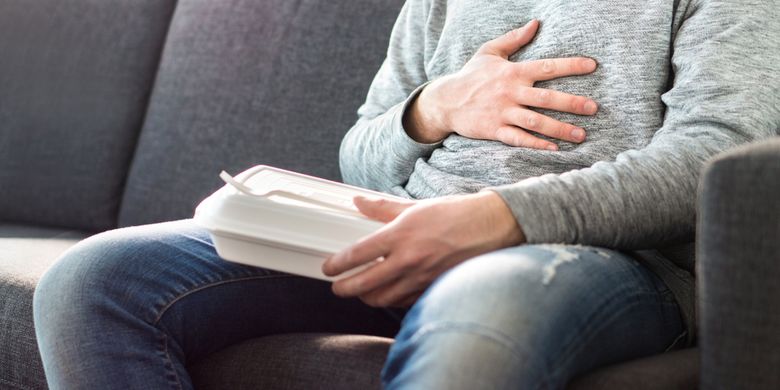KOMPAS.com – Gastritis or inflammation of the lining of the stomach can occur suddenly or appear slowly.
In some cases, gastritis can cause ulcers and an increased risk of stomach cancer.
However, gastritis can also get better on its own without the need for treatment.
Also read: 9 Causes of Itchy Breasts in Women
Symptoms
Unfortunately, gastritis doesn’t always show symptoms. However, if symptoms occur they can be the following:
- nausea
- gag
- pain or tenderness (indigestion) in the upper stomach that can get worse or better with eating
- feels full in the upper stomach after eating.
Cause
According to gastroenterologist Christine Lee, irritation can be caused by various causes such as infections, drugs such as aspirin or NSAIDs and stomach (stomach) cancer.
Gastritis can also be triggered by toxic substances including excessive alcohol, ingestion of toxins or chemicals, or excess stomach acid.
A person can also experience gastritis because the mucus lining that protects the stomach wall is too thin or damaged.
As a result, digestive juices can damage the lining of the stomach.
Certain diseases can increase the risk of gastritis, such as Crohn’s disease and sarcoidosis, a condition in which a collection of inflammatory cells grows in the body.
In addition, the risk of developing gastritis can increase due to the following conditions:
- bacterial infection
- overuse of pain relievers.
- age factor
- stress
- excessive alcohol consumption.
The dangers of gastritis
Gastritis can develop into serious complications such as stomach cancer, stomach ulcers, intestinal perforation, sepsis, and death.
The good news, these complications are very unlikely.
In most cases, gastritis can heal on its own if it is balanced with the right combination of treatment and lifestyle modifications.
Also read: 3 Ways to Prevent HPV Infection
Here’s a lifestyle that can help digest gastritis:
1. Eat small portions and often
If you experience indigestion frequently, eat small portions however
more often to help alleviate the effects of acid reflux.
2. Avoid trigger foods
Avoid foods that irritate your stomach, especially spicy, sour, fried, or fatty foods.
3. Avoid alcohol
Alcohol can irritate the mucosal lining of the stomach.
4. Be careful using pain relievers
Consider changing pain relievers. If you are taking a pain reliever that increases your risk of gastritis, ask your doctor if acetaminophen (Tylenol, others) might be an option for you.
These drugs are less likely to worsen digestive problems.
– .


